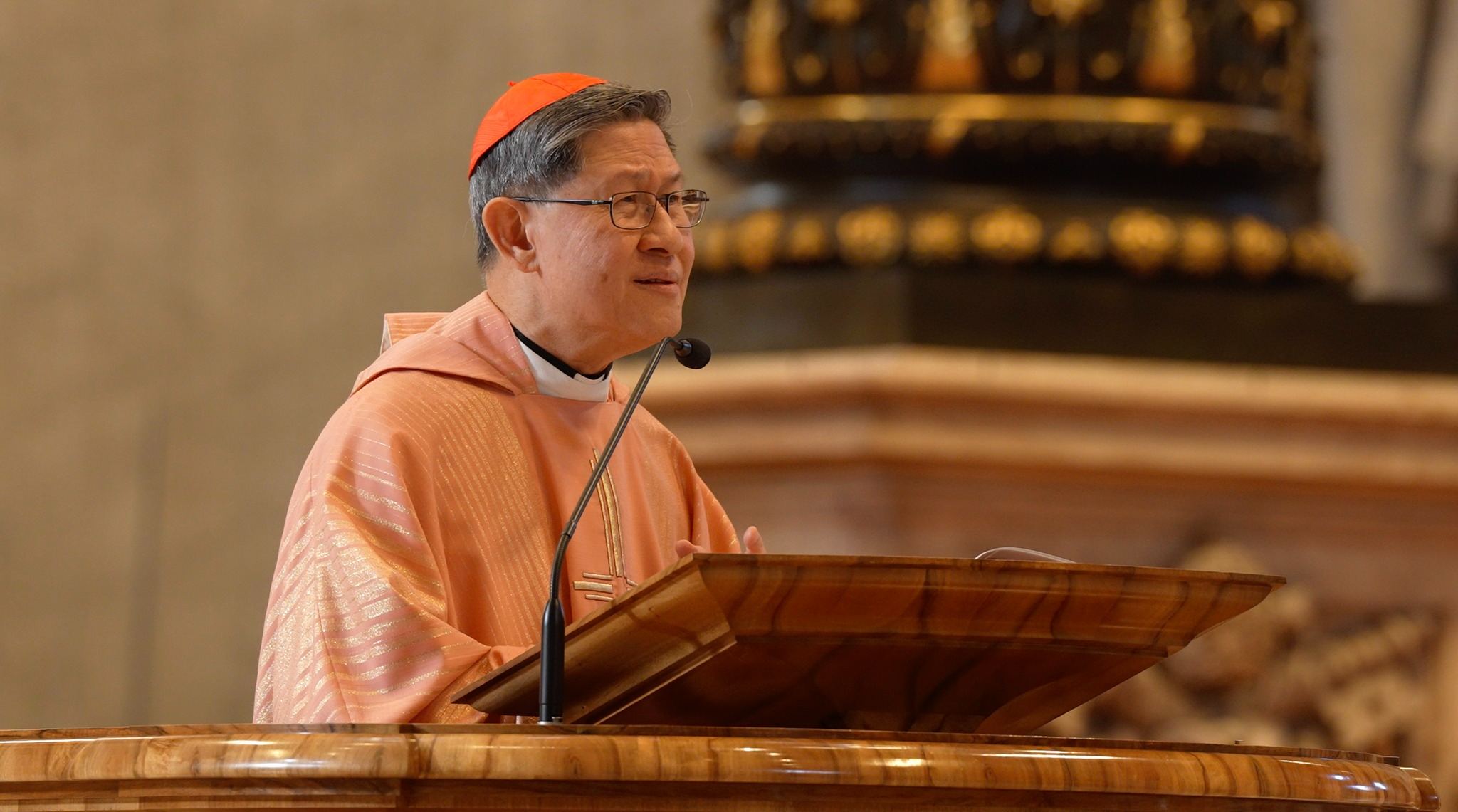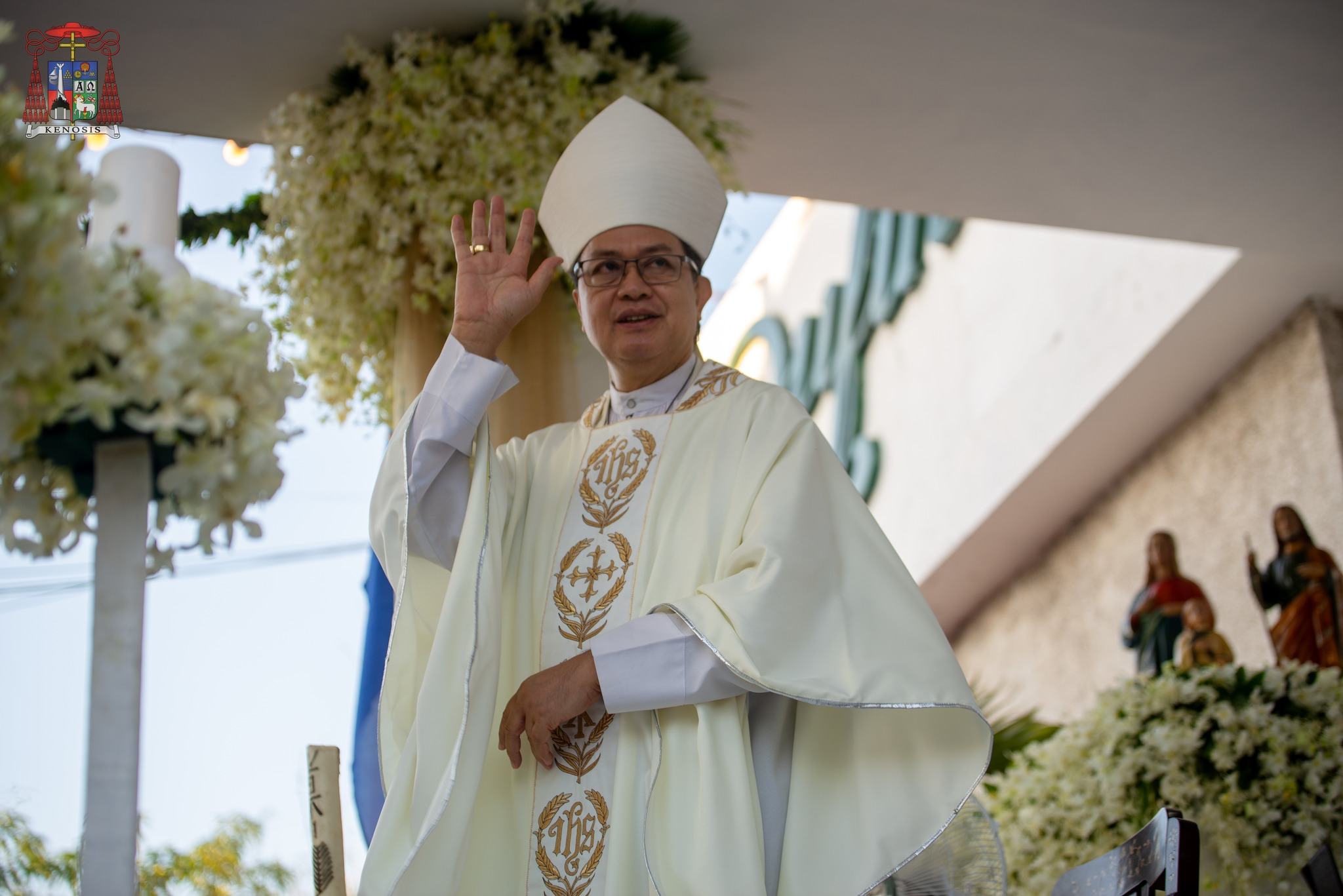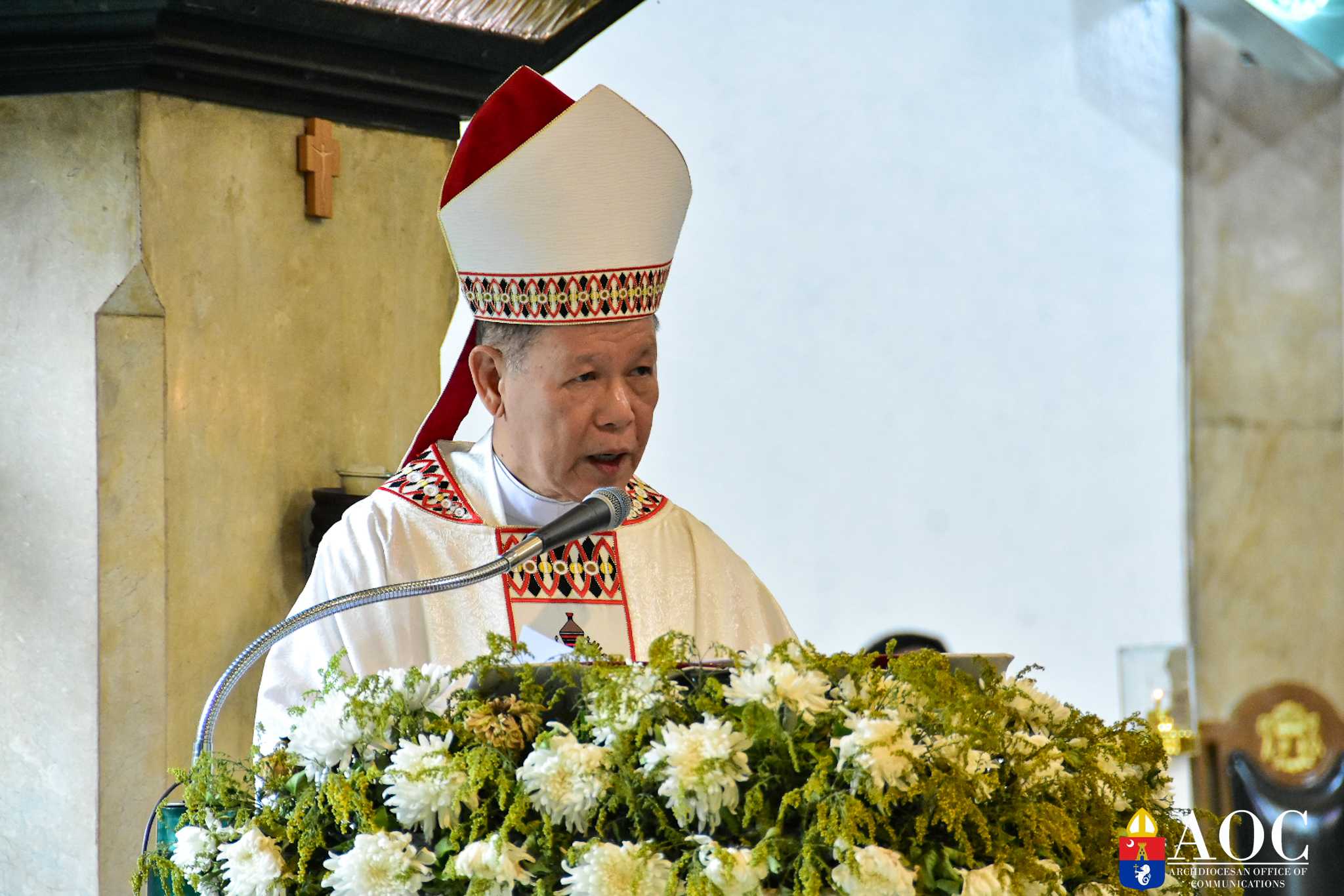Get to know the three Filipino cardinal-electors
Following the passing of Pope Francis, the Roman Catholic Church is now entering a significant period as the College of Cardinals prepares to convene a papal conclave to elect his successor. This gathering brings together all cardinal electors—those cardinals under the age of 80—who are entrusted with the task of choosing the next pontiff.
Currently, there are 135 cardinals eligible to participate in this event and cast their vote. Among this group of global Church leaders, three hail from the Philippines.
Read on to learn more about their roots and stance on important issues of society.
Luis Antonio Tagle

Born in Manila, Tagle started his religious path at St. Andrew’s School in Parañaque before entering the inter-diocesan St. Jose Seminary in the capital. He then took up philosophy at the Ateneo de Manila University and theology at the Loyola School of Theology.
After entering the priesthood in 1982, he served in parish ministry and as the spiritual director of the Diocesan Theological Seminary in Imus, where he later became Rector. He also spent his time teaching philosophy and theology at the Divine Word and San Carlos Seminaries and at the Loyola School of Theology.
Tagle was eventually appointed Bishop of Imus and was ordained in 2001. He placed particular importance on the youth and encouraged them to "spread the influence of Jesus" through social media.
Ten years later, he moved further in the ranks with his appointment as Archbishop of Manila in 2011 before being elevated by Pope Benedict XVI to the College of Cardinals in 2012.
When Francis became Pope, Tagle was tasked to become the Prefect of the Congregation for the Evangelization of Peoples, which is responsible for missionary work and related activities.
Like the late head of the Church, Tagle has a welcoming attitude toward the LGBTQ+ community. He has famously criticized the Catholic Church for using "harsh words" to describe queer people as well as divorced and remarried Catholics, urging them to stop the discrimination.
"Ang hamon ay i-discover ang pagiging tao kapag nakuha ang bokasyon bilang tao hindi ka gagawa ng nakasisira sa kapwa, sa Diyos, at sa lipunan. Kapag alam mo ang bokasyon mo, ano man ang talents mo, uniqueness mo, gagamitin mo yun sa Diyos, hindi mo yun gagamitin sa kasiraan mo, ng kapwa mo, at ng lipunan," he said in an event.
He also led a social media campaign called the Lazarus Project that advocated for greater acceptance of people traditionally judged such as sex workers, the homeless, and LGBTQ people.
Despite this, he still has some reservations about same-sex marriage and has also affirmed Church teaching on the immorality of contraception and abortion.
"We are supposed to protect all forms of life, not just the lives of those who are dear to us. Whether the person is innocent or guilty, life must be respected and preserved," he said in an interview on Radyo Veritas.
"Many of us are worried about the extra-judicial killings, but why are there only a few who raise their misgivings about abortion? We have to be more vocal against abortion because that is a form of murder too," he added.
Pablo David

Pablo Virgilio "Ambo" David grew up in San Fernando, Pampanga. At the young age of 11, he experienced a spiritual calling that led him to enter the Mother of Good Counsel Minor Seminary in his home province.
He was ordained a priest in 1983 before he decided to spend a year at the École Biblique in Jerusalem and five years at the Flemish campus of the University of Leuven in Belgium.
Upon returning to the Philippines, David held several management and teaching positions, including his current role as the president of the Catholic Bishops' Conference of the Philippines since 2021. He is also set to become the next Vice President of the Federation of Bishops Conferences of Asia.
David was first appointed by Francis as the Bishop of the Diocese of Kalookan in 2015 before being elevated to the cardinalate on December 7, 2024.
David has also been a vocal figure on significant social issues. Notably, he is known as a staunch critic of the bloody war on drugs campaign led by former president Rodrigo Duterte.
"In the bloody, bloody drug war, we were literally picking up dead bodies in my diocese, in all three cities, and the carnage was really awful," he said in an interview with America Magazine.
Despite facing "a lot of death threats" as a result, this did not deter him from preaching against extrajudicial killings and the injustice suffered by victims and their families.
When it comes to the LGBTQ+ community, David highlighted that he wants to see every person as a human being beyond labels of gender, sexuality, or any other defining trait.
"I see strong tendency to label people [based on] gender, sexuality, political affiliation, religion and all of that... Where I come from we’re just human beings. In the Filipino language there is a same word for man and woman. If I’m talking about a person I just say ‘tao’ and that ‘tao’ can be a man – male or female, a man or a woman," he explained in a press briefing, per LiCAS News.
He also shared how CBCP fully supports a bill protecting the queer community from discrimination.
Jose Advincula

Jose Advincula began his clerical journey in his hometown of Dumalag, starting at the Saint Pius X Seminary in Roxas City, where he completed both his high school and philosophical studies. He then attended theology courses at Santo Tomas University in Manila.
After being ordained a priest for the Archdiocese of Capiz in 1976, he was appointed Rector of Saint Pius X Seminary, becoming also Defender of the Bond, Promoter of Justice, and then Judicial Vicar in the province.
Advincula was elevated as Bishop of San Carlos in 2001 by Pope John Paul II before serving as the Archbishop of Capiz a decade later in 2011 on the appointment of Pope Benedict XVI.
Francis made him a cardinal in 2020 and a member of the Dicastery for Clergy, which is responsible for overseeing matters regarding priests and deacons not belonging to religious orders. Shortly after, he was made the 33rd Archbishop of Manila in 2021.
During one of his homilies, Advincula underscored how he wants to shine the spotlight on issues being experienced by women, children, the elderly, those in the business sector, government officials, members of the LGBTQ+ community, and ordinary workers.
"We want to listen to you. We want to journey with you. We want to discern God’s will with you. No matter how far you feel you are from the Church and even from God, you have something to contribute," he said.
Advincula expressed his disapproval of abortion and the commodification of sex, however, urging the public to reflect on the value of life.
"Let us continue marching and proclaiming that life is beautiful, that life is an undeserved gift, and that life is also a task and a responsibility to uphold and protect," he said, per CBCP News.
He also has strong opinions against mercy killing of the weak, disabled, and elderly as it is “morally indefensible," as well as extrajudicial killings, calling it “evil” and violating human dignity.
On matters of divorce, he described the divorce bill in the Philippines as a challenge for the Church in protecting the sanctity of marriage and family life.
"The passage of divorce bill in the House of Representatives should not deter us from working doubly hard for the sake of marriage and the family. We take it as a challenge to recalibrate our efforts in ministering to couples in difficult situations. There is a need to truly accompany them in their perilous journey as a couple and as a family," Advincula said in an interview with Veritas News.
"If indeed divorce becomes a law in our country in the future, let it be understood that it will only apply to civil marriages and not to sacramental marriages. The fact remains that divorce is not the ultimate solution to problematic unions," he added.


